In the realm of international trade, transport terms play an essential role. They define the responsibilities and obligations of buyers and sellers during the transportation of goods and directly influence the costs and risks associated with transactions. DAP (Delivered At Place), is one of the most popular shipping terms. This article provides an in-depth analysis of DAP in shipping terms, exploring its definition, operation process, advantages and challenges, and its application in contemporary international trade.
Definition of DAP
DAP is a clause within the International Commercial Terms (Incoterms), established by the International Chamber of Commerce (ICC).
Under the DAP clause, the seller is obliged to deliver goods to the destination specified by the buyer, bearing all costs and risks until the goods are unloaded at that location. This implies that the seller is responsible for export customs clearance, transportation, and unloading of the goods at the destination.
DAP operation flow
The operational process under DAP terms encompasses several steps:
Collection of Goods: The seller or their agent gathers goods from various manufacturers or sellers.
Cargo Sorting and Consolidation: The collected goods are transported to the freight forwarder’s warehouse or consolidation center for sorting and consolidation based on destination.
Export Customs Clearance: Complete customs clearance formalities in the exporting country, including payment of export duties and submission of necessary documents.
International Transportation: Post-clearance, goods are loaded onto the means of transport, commencing international transportation.
Customs Clearance at Destination: Upon arrival at the destination, the buyer is responsible for completing import customs clearance.
Goods Distribution: After customs clearance, goods are distributed to the location specified by the buyer.
Delivery of Goods: Ultimately, goods are transported to the buyer-specified location, finalizing the delivery.
Advantages of DAP in Shipping Terms
DAP terms offer several benefits for international trade:
Cost-Effectiveness: By sharing transportation resources, multiple shippers can share transportation costs, reducing individual shipper expenses.
Transport Efficiency: Consolidating cargo optimizes container space usage, minimizes empty container transportation, and enhances the utilization rate of transportation tools.
Risk Management: Sellers can better manage transportation risks through DAP terms until the goods safely reach their destination.
Flexibility: DAP terms offer shippers flexible shipping options, especially beneficial for those with smaller shipments.
Considerations when using DAP in shipping terms
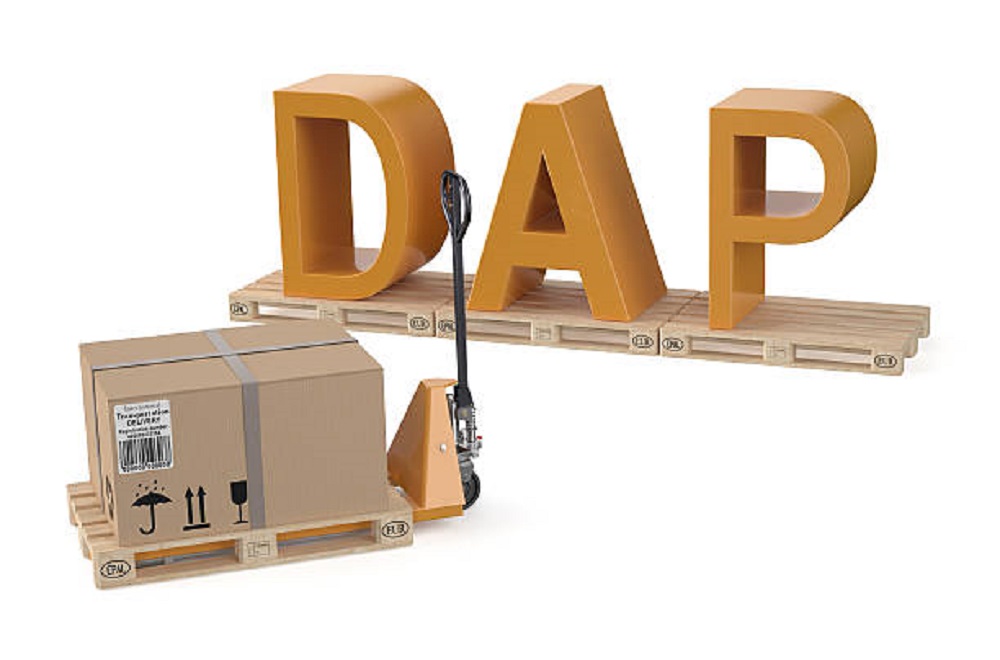
Specify the Place of Delivery: The place of delivery should be accurately described in the contract to prevent liability disputes arising from ambiguous statements.
Select Transportation Mode: Choose the appropriate transportation mode based on the characteristics of the goods and delivery time requirements to ensure the goods’ safe and timely arrival.
Insurance Coverage: Although sellers are not typically required to insure the buyer’s subsequent transportation risks under DAP, sellers should consider at least insuring to the delivery point to guard against unexpected events.
Tariffs and Taxes: Clarify the responsibilities of both parties for import tariffs, value-added tax, and other taxes to avoid additional costs later.
Document Preparation and Customs Clearance: Sellers need to ensure that all necessary export and import documents required by the buyer are complete and accurate to facilitate smooth customs clearance.
Difference between DAP and other shipping terms
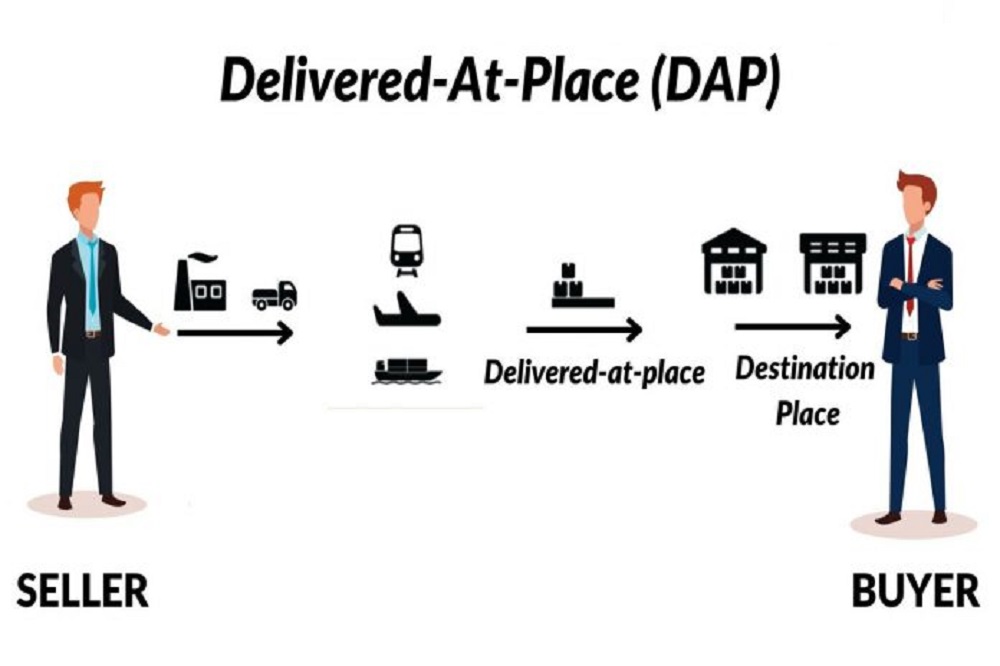
In terms of transportation, DAP differs from other terms such as CIF (cost, insurance, and freight) and FOB (free on board). CIF requires the seller to be responsible for all costs and risks of transporting the goods to the destination port, including insurance costs, while FOB requires the buyer to be responsible for all costs and risks after the goods leave the seller’s control.
DAP lies somewhere in between; the seller is responsible for transporting the goods to the buyer’s designated place and unloading them, with the risks thereafter borne by the buyer.
Why Choose JIKE Logistics for Your Shipping Needs?
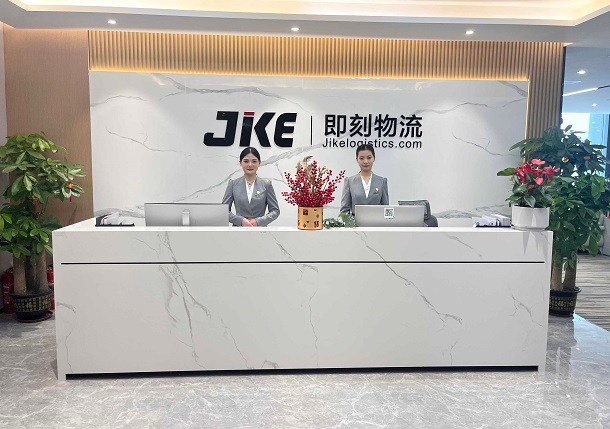
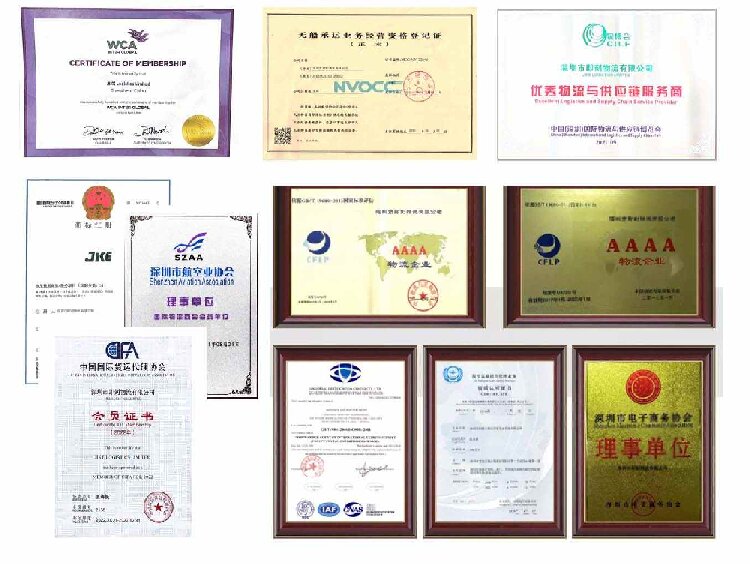
As a professional logistics service provider, JIKE Logistics is dedicated to offering customers comprehensive and efficient shipping solutions.
● Competitive railway freight, sea freight, express freight and air freight from China
● Vast experience in import and export.
● Professional team-40% staff working in the logistics industry for more than 10 years.
● Assistance in producing all the necessary documentation.
● Guidance on the whole shipping process.
● Door-to-door service available.
● Fast quotation.
Whether your goods are shipped domestically or internationally, we can provide full tracking and reliable, expedited services. Additionally, we have established close cooperative relationships with major airlines, shipping companies, and logistics partners, ensuring your goods are delivered to their destinations at the most favorable prices and in the shortest transit times. Whether it’s bulk goods, sensitive goods, or special goods, Jike can provide customized transportation solutions to ensure your goods arrive safely and on time at their destination.
Contact Us For Dap Shipping Service.
FAQ
1. What modes of transport are DAP applicable to?
DAP terms apply to all modes of transportation, including sea, air, land, and multimodal transport.
2. What are the main responsibilities of the seller under DAP terms?
Under DAP terms, the seller is responsible for transporting the goods to the designated destination, paying for transportation costs, export customs clearance, and unloading the goods at the destination.
3. What is the difference between DAP terms and DDP terms?
DDP (Delivered Duty Paid) requires the seller to be responsible for all costs, including import taxes and customs clearance fees at the destination, while under DAP terms, the buyer is responsible for import customs clearance and related taxes.
4. When does the risk transfer from the seller to the buyer under DAP terms?
Under DAP terms, risk passes from the seller to the buyer when the goods are unloaded at the named destination.
5. Does the DAP clause require the seller to purchase cargo transportation insurance?
DAP terms do not require the seller to purchase cargo transportation insurance, but the buyer will typically purchase insurance for the safety of the goods.
6. Under DAP terms, who is responsible if the goods are damaged during transportation?
If the goods are damaged in transit, the liability lies with the seller until the goods are unloaded at the destination and transferred to the buyer.
7. What types of goods are DAP applicable to?
DAP terms apply to all types of cargo, especially those not suitable or required to be shipped in full container loads.
8. What should buyers pay attention to when using DAP terms?
When using DAP terms, buyers need to pay attention to the destination’s import regulations, customs clearance procedures, and storage and further transportation arrangements for the goods at the destination.
9. How does the DAP clause affect logistics planning in international trade?
The DAP clause affects logistics planning in international trade because it requires the seller to be responsible for delivering the goods to a designated location and unloading them, which may impact the choice of transportation route, cargo packaging requirements, and the way goods are tracked and monitored.
10. How should the “designated place” in the DAP clause be clarified?
The contract should accurately describe the delivery location, including the specific address, port name, or inland point, to prevent liability disputes caused by ambiguous statements.
11. What costs does the seller need to bear under the DAP terms?
The seller needs to bear all transportation costs from the place of shipment to the designated place, including but not limited to freight, insurance (unless otherwise agreed), and export customs clearance fees.
12. What costs does the buyer need to bear under the DAP terms?
The buyer is responsible for the cost of unloading from the designated location, import taxes and duties, and any subsequent transportation or storage costs that may be incurred.
13. Under DAP terms, does the seller need to provide shipping documents?
Yes, the seller is usually required to provide necessary shipping documents such as bill of lading, waybill, etc., to prove the transportation and delivery of the goods.
14. How frequently is the DAP clause used in international trade?
The use of DAP clauses in international trade is increasing, especially in transactions where the seller and buyer’s responsibilities need to be clearly defined and the goods need to be transported to a designated inland location.
15. If the delivery location specified by the buyer is unable to receive the goods, who is responsible?
If the delivery location specified by the buyer is unable to receive the goods (e.g., due to traffic congestion, port closure, etc.), the responsibility may be borne by the buyer, as the buyer is responsible for ensuring the receivability of the delivery location.
Related Articles
View all articles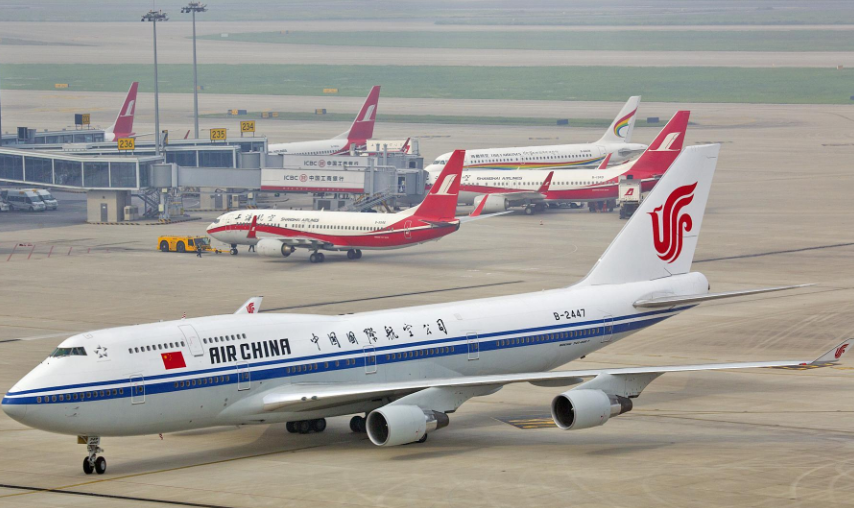
Custom Air Trucking: A Complete Guide from Top Service Provider
Custom air trucking refers to air freight + truck delivery, which is a customized delivery method from China to the destination country like US by air freight on the first leg…
27 December 2024
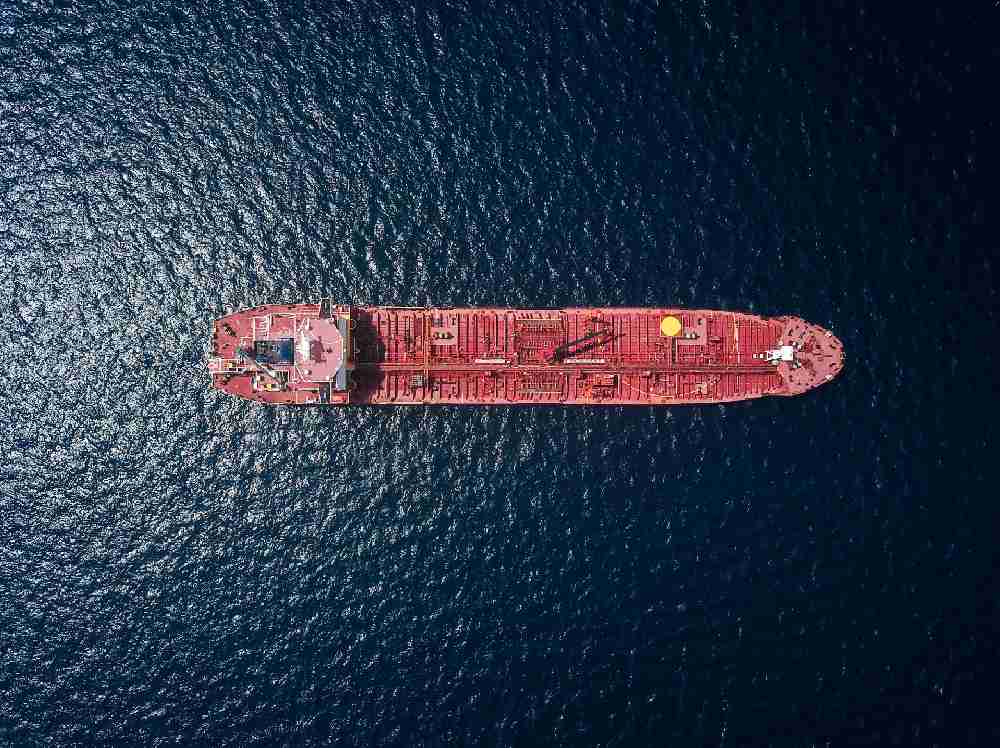
Sea Freight From China | Sea Freight Rates
How much does it cost to ship by sea from China? What is the process for sea freight from China? What is the best shipping solution? Get a free quote!
14 October 2022
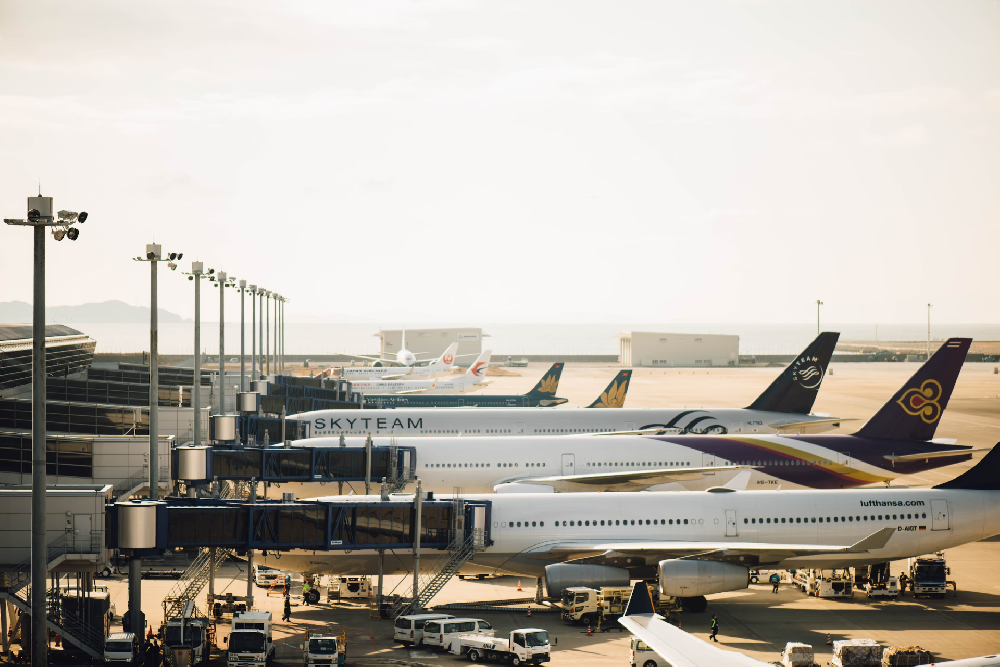
Air Freight From China | Air Shipping Rates
Best prices for air freight from China to all over the world, we offer the best air cargo shipping services. Contact us now and get a free quote!
07 October 2022


Consult Our Experts